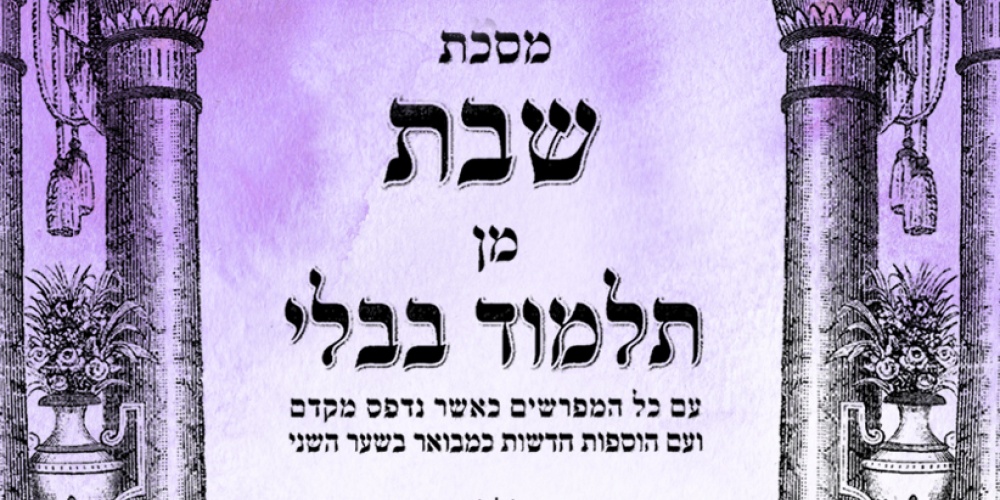
“Who is wealthy? One who is happy with his lot!” (Avot 4:1). This teaching of Ben Zoma is undoubtedly one of the best known, most difficult and least-observed teachings in rabbinic literature. Man, by his very nature, is never satisfied with his lot. “One who has one hundred, wants two hundred, and one who has two hundred wants four hundred” (Kohelet Rabba 1:13).
Yet this desire for more is most necessary, as without it, society would be weakened. “If not for the evil inclination, no man would build a house, take a wife, or beget children” (Breisheet Rabba 9:7). Ben Zoma understood this very well. One may strive for more, yet at the same time, one must aim to be satisfied with whatever results one’s striving brings. This is a most difficult line to walk, but one that will bring great joy and wealth to those who mange to do so.
Yet even more than teaching morals, ethics, and values, Ben Zoma was giving a lesson in Economics 101. Wealth is little more than the ability to acquire that which one desires. If one has all that one wants, then by definition, one is wealthy. What greater wealth can there be than the feeling that one is lacking nothing, and rejoicing in what one does have? On the other hand, if one can’t afford something that one wants, one can be a billionaire, but is not truly wealthy.
Like much of life, wealth is relative. All too often, we view our wealth in comparison with others. It is the rare, and blessed, person who looks at his “wealth” in isolation. One might be very happy with one’s salary—until one finds out that someone else with equal or lesser talent is making more. How many athletes are not satisfied making millions a year as long as someone else is making more? My father, z”l, would often explain that the truly wealthy person is sameach bechelko[1], literally, with the wealth others have. One who can rejoice in the wealth of others is truly wealthy.
As what is “enough” is defined differently by every person, we should not be surprised that there are other Talmudic voices offering different definitions of wealth.
“Who is wealthy? One who has nachat ruach, peace of mind, from his wealth; these are the words of Rabbi Meir” (Shabbat 25b). Rashi understands Rav Meir as reiterating the teaching of Ben Zoma that one should be happy with one's lot, “whether it be a little or a lot”. At the same time, it seems that Rav Meir is building on that teaching. One can be satisfied with one’s wealth, but that wealth may have come about through great sacrifice—sacrifice of time with one’s family, communal involvement, Torah study and more. Rav Meir, living in the generation following Ben Zoma, taught that true wealth is that acquired with peace and tranquility. This is wealth that does not come at the expense of other priorities and is wealth that is acquired with minimal stress. “Nachat ruach is the one who grinds just a little bit [and has his needs met]” (Yerushalmi, Terumot 1:2). Even more important than being satisfied with one’s lot is the process of getting to that point.
Rav Meir seems to be summarizing the Talmudic teaching immediately prior. The Gemara quotes various interpretations of the verse, “My life was bereft of peace, I forgot what happiness was” (Eicha 3:17). Following destruction, there is much to lament. Not having candles to light for Shabbat[2], a bath, even the means to wash one’s hands and feet, or the lack of a nice bed and linen. Rav Abba understands the verse to be referring to “an adorned wife for Torah scholars”. It often takes tragedy for people to realize that having the basics of life makes one truly blessed.
Rav Meir’s teaching is then followed by three other definitions of wealth.
“Rabbi Tarfon says: anyone who has one hundred vineyards, and one hundred fields, and one hundred slaves working in them. Rabbi Akiva says: Anyone who has a wife whose actions are pleasant. Rabbi Yossi says: Anyone who has a bathroom close to his table”.
We seem to have, at least according to Rabbi Tarfon, very different definitions of wealth. He focuses on material possessions, defining wealth not subjectively, but objectively. Just as we might define wealth as being a millionaire (at least, we did when I was growing up), in Rabbi Tarfon’s day, it was being a “hundredaire” that was the societal definition of wealth. While Rabbi Tarfon focuses on economics of wealth, Rabbi Akiva defines wealth in terms of the family. There is no more important decision in life than who one does—or does not—marry. That decision will, more than any other, define the richness of one’s life. Rav Yossi’s definition of wealth is that of good health. Having a nearby washroom—a real luxury until very recently—symbolizes the recognition of the good that our body is functioning properly.
The Mahartz Chajes offers a fascinating interpretation, explaining that each of these four views reflects the life experiences of the one who said them. He notes that Rav Meir was a scribe (Eiruvin 13a)—a job the Gemara says is destined to ensure meager wages—who spent two-thirds of his money on basic necessities, giving away one-third to those less fortunate than he. He was happy in his chosen path, and his nachat ruach made him feel like the wealthiest person around.
Rabbi Tarfon was an “asheer gadol, a man of great means” (Nedarim 62a), and for such a person, wealth will typically be defined by material blessings.
Rabbi Akiva’s great success in life was due to the tremendous support and dedication of his wife, without which no one would have ever heard of him. He thus taught that wealth is defined by one’s family. “Sheli, v’shelachem shela, My [success] and yours are hers” (Ketubot 63a).
While Rav Yossi’s definition of wealth seems to relate to the most physical part of our being, our bodily function, the Mahartz Chajes explains that it is anything but. “Rabbi Yossi said: May my portion be among those who die from intestinal disease, as the Master said: Most righteous people die of intestinal disease” (Shabbat 118b). Rav Yossi saw intestinal disease as a sign of divine favour. The wealth of this world is temporary; true wealth is found in the World-to-Come, with the path to the spiritual world through this physical one.
A month ago, had I asked someone, “Who is wealthy?” I would have likely found myself engaged in a discussion regarding the record high stock market, the booming housing market, or in which locale one might be spending Pesach. (Or perhaps the latest doings of the Toronto Maple Leafs.)
What a difference a month makes. Today, we all realize that true wealth is found in good health and with loving families. One who has that should be very happy with one’s lot.
Thirty days before Pesach one asks and investigates about the laws of Pesach. On Pesach, we rejoice, even if our meal includes stale wafers and bitter herbs. Like our ancestors, who could not leave their homes on that very first historical Pesach, may we experience freedom so fast that we are unprepared when it arrives. That will make us all very wealthy.
[1] If chelki means “my” wealth, then chelko means “his” wealth.
[2]This explains why this teaching is in the second chapter of masechet Shabbat.



